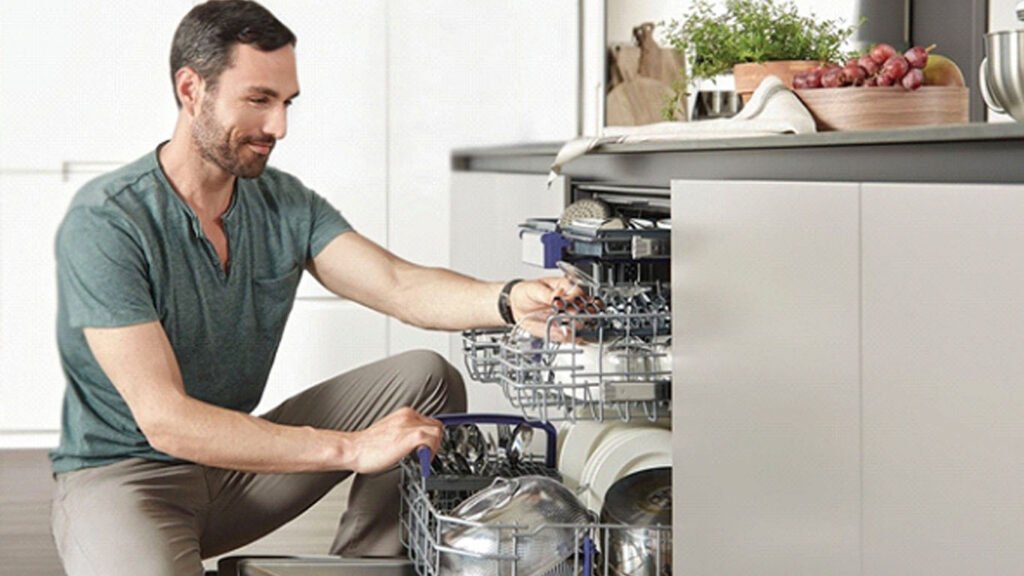Introduction.
The most common dishwasher problems that homeowners face include clogged filters, faulty door latches, and drainage issues. When filters get clogged with food particles, it can lead to poor cleaning performance and unpleasant odors.
A malfunctioning door latch can prevent the dishwasher from starting or cause leaks during operation. Drainage problems often result in standing water at the bottom of the dishwasher after a cycle.
Too Busy? Try These Tips To Streamline Your Drain Repairs
- Clogged Drainage System: One prevalent issue is a clog in the drainage system, often caused by food particles, grease, or debris. Symptoms include standing water in the dishwasher after each cycle or water leaking onto the kitchen floor. To resolve this, check the drain filter and remove any obstructions. You can also use a plumber’s snake or a mixture of baking soda and vinegar to clear stubborn clogs.
- Malfunctioning Heating Element: Another common problem is a malfunctioning heating element, which affects the dishwasher’s drying performance. If dishes come out wet or with residue, it indicates an issue with the heating element. Ensure the heating element is receiving power and inspect for any visible damage. If faulty, replacing the heating element can restore proper drying functionality.
- Faulty Door Latch: A faulty door latch can prevent the dishwasher door from closing properly, leading to leaks or ineffective cleaning. Check the door latch mechanism for any damage or misalignment. Sometimes, simply cleaning the latch and realigning it can resolve the issue. If the latch is damaged, replacing it is necessary to ensure a tight seal when the dishwasher is in operation.
- Poor Washing Performance: If dishes aren’t coming out clean after a wash cycle, several factors could be at play. Insufficient water pressure, a malfunctioning spray arm, or using the wrong detergent may contribute to poor washing performance. Check the water inlet valve for clogs or sediment buildup, and ensure the spray arms can rotate freely. Using a high-quality dishwasher detergent and following loading instructions can also improve cleaning results.
The Most Common Type of Plumbing Issues In Commercial
- Foul Odors: Lingering odors inside the dishwasher can be unpleasant and indicate bacterial growth or mold accumulation. Regular cleaning and maintenance are essential to prevent foul odors. Clean the interior of the dishwasher, including the door gasket, spray arms, and filter, using a mixture of vinegar and baking soda. Running a cleaning cycle with a dishwasher cleaner or deodorizer can also help eliminate odor-causing bacteria.
To tackle these issues effectively, regular maintenance is key. Cleaning filters and inspecting them for blockages can improve overall dishwasher performance. Checking the door latch for any signs of wear or misalignment can prevent future breakdowns.
If problems persist, contacting a professional dishwasher repair service may be necessary to diagnose and fix more complex issues accurately.

One common dishwasher problem that many people face is dishes coming out dirty or cloudy after a wash cycle. This issue can often be solved by ensuring that the dishwasher’s spray arms are not clogged with debris and that the water temperature is set high enough to effectively clean the dishes. Additionally, using a quality dishwasher detergent and regularly cleaning the filter can also help improve cleaning performance.
Another frequent issue with dishwashers is unpleasant odors emanating from the appliance. To combat this problem, try running an empty cycle with hot water and white vinegar to help eliminate any built-up residue or bacteria causing the smell.
Regularly clean dishwasher seals and door gaskets to prevent mold and foul odors
When it comes to dishwasher issues, one crucial damage that can cascade of problems is a malfunctioning heating element. The heating element plays a key role in the drying process of dishes, and if it is not functioning properly, dishes may come out wet or with residue. This can lead to mold growth and unsanitary conditions in the dishwasher over time.
Another critical issue that often goes unnoticed but can have significant implications is a clogged or damaged drain hose. A clogged drain hose can cause water to accumulate in the dishwasher, leading to standing water and potential leaks
A damaged drain hose can lead to water leaks during dishwasher operation, potentially damaging surrounding cabinetry or flooring It is essential to regularly inspect and maintain the drain hose to avoid these problems and ensure optimal dishwasher performance.
Checking the inlet valves, hoses, and connections for leaks or blockages can also help troubleshoot this issue. Clearing any obstructions from the drainage system prevents water from pooling in the dishwasher and leaking onto the kitchen floor..
Conclusion
By being aware of these common dishwasher problems and implementing proactive maintenance practices, you can keep your dishwasher running smoothly and avoid disruptions in your kitchen routine. Regularly inspecting and cleaning the dishwasher, along with promptly addressing any issues that arise, will ensure optimal performance and longevity of your appliance. Remember to consult the manufacturer’s manual or seek professional assistance for complex repairs beyond your expertise. With proper care, your dishwasher will continue to be a reliable ally in maintaining a clean and efficient kitchen


